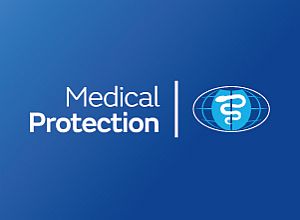An expression of gratitude goes a long way, say Dr Yash Naidoo, dento-legal consultant, and Dr Volker Hitzeroth, medico-legal consultant, Medical Protection Society, who make a convincing case for a national compliments portal for healthcare professionals.
They write:
At Medical Protection Society (MPS), we assist members on a daily basis with complaints brought against them.
The system in South Africa is such that it makes it easy for a patient or concerned party to lodge a complaint against a practitioner via the HPCSA, which is in keeping with its mission to regulate and guide healthcare professions and protect the public.
While spurious and vexatious complaints do happen, in our experience this is not as common as practitioners may think. An aggrieved party should, and does, have the right to express their concerns to the regulator for proper, objective assessment.
With that said, at MPS we are naturally in close contact with healthcare professionals on the receiving end of these complaints – whether those complaints are justifiable, vindictive or spurious.
MPS has written in the past about the emotionally taxing journey of a complaint (https://www.medicalbrief.co.za/journey-of-a-complaint/).
This got us thinking. We know that complaints affect the well-being of practitioners and contribute to practitioner burnout and stress.
Bear in mind, they are also an arduous journey for the complainant, who is often the patient. Sadly, no one really “wins” in these situations. However, we also know that gratitude can have tremendously positive effects on the practitioner-patient relationship.
Given this, would it not be worth considering the introduction of an official compliments portal, alongside the existing complaints process?
Gratitude
Within well-being literature, the study of gratitude is well entrenched and has been the focus of much attention in recent years. This includes not only the concept of gratitude, but also the impact of gratitude giving and receiving.
Being grateful, practising gratitude techniques and having a grateful demeanour are said to reduce burnout and improve well-being.
There is little doubt about the uplifting experience and positive effect that the giver of gratitude experiences. Similarly, the receiving of gratitude in the form of a complimentary thank you, a genuine and kind acknowledgement, or a grateful comment, has a positive effect on the receiver.
Receiving gratitude signals that one is seen, acknowledged, and appreciated – and usually triggers pleasure, joy and more goodwill.
It is a powerful experience that conveys more than just thankfulness. It signals approval and affinity and may set off a virtuous cycle of positive emotions and good deeds.
Receiving a word of thanks triggers a positive affective response mediated by neurochemistry and neuroplasticity, which ultimately leads to increased self-esteem and self-worth resulting in more contentment, compassion, and feelings of connection. Interestingly, some studies seem to suggest that it is the receipt of gratitude rather than the giving of gratitude that has a more positive effect on neurological circuits.
Healthcare practitioners are no different from the general population, and tend to thrive on positive feedback, recognition, and approval. Such positive sentiments enhance motivation, encouragement and wanting to please.
A formal compliments portal, in parallel to the current complaints process, would demonstrate appreciation, and create a regulated framework that counterbalances the negative perception of the current complaints pathway.
It would create an objective and verifiable system where patients and their families could compliment a practitioner, show their gratitude, and signal to the healthcare profession that they are appreciated, wanted, and needed.
It may even make the practise of medicine more rewarding and prevent practitioner burnout and stress.
How would it work?
We do know, again from assisting practitioners with complaints in general (whether they stem from the formal HPCSA process or otherwise), that patients are turning more and more often to Google to review a doctor using a star system.
It’s not inconceivable that a similar model could be adopted for a compliments portal, building in the necessary checks and balances to verify patients’ or third parties’ identities, akin to how it is done in the complaints system.
The mechanics and ethics of such a system would need deeper consideration, including who would establish it and oversee its operations, as well as what public recognition healthcare professionals, if any, with favourable reviews would receive.
Someone far more creative than the authors of this article could certainly come up with positive and good-faith incentives for such a system if they were deemed beneficial to the profession as a whole.
When advising practitioners generally, we always say they should make feedback from patients as seamless as possible. The cynic might believe that patients only want to complain instead of compliment, but we know this is not true – otherwise there would not be so many five-star Google-rated practices out there, which there are.
The reason we encourage feedback, both positive and negative, is that regular input gives practitioners the opportunity to reflect on what’s going well, what’s not, and what may need to change. Ultimately, this continuous feedback loop leads to improved patient care.
The potential to improve practitioner-patient relationships abounds. We also know that patients often Google their practitioners before deciding to book an appointment. Imagine if they did not have to rely on a third-party search engine’s results (which can be skewed either upward or downward – the former by means of “buying” positive reviews and the latter by disgruntled patients or competitors – which comes with the territory when there are no identity verification processes in place).
Instead, if patients could rely on a trusted system the benefits go without saying.
Conclusion
We appreciate that this vision may well be lofty and idealistic, but it is one of many ways which could improve the well-being of practitioners, the profession, and the public as a whole.
See more MPS columns from MedicalBrief archives:
MPS welcomes ‘essential’ incident and complaint guidance from DoH
Social media complaints and how to deal with them
Badmouthing colleagues unethical and risks healthcare reputational damage

